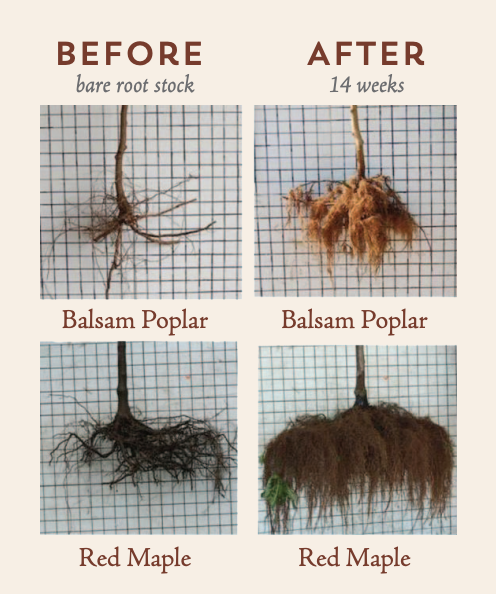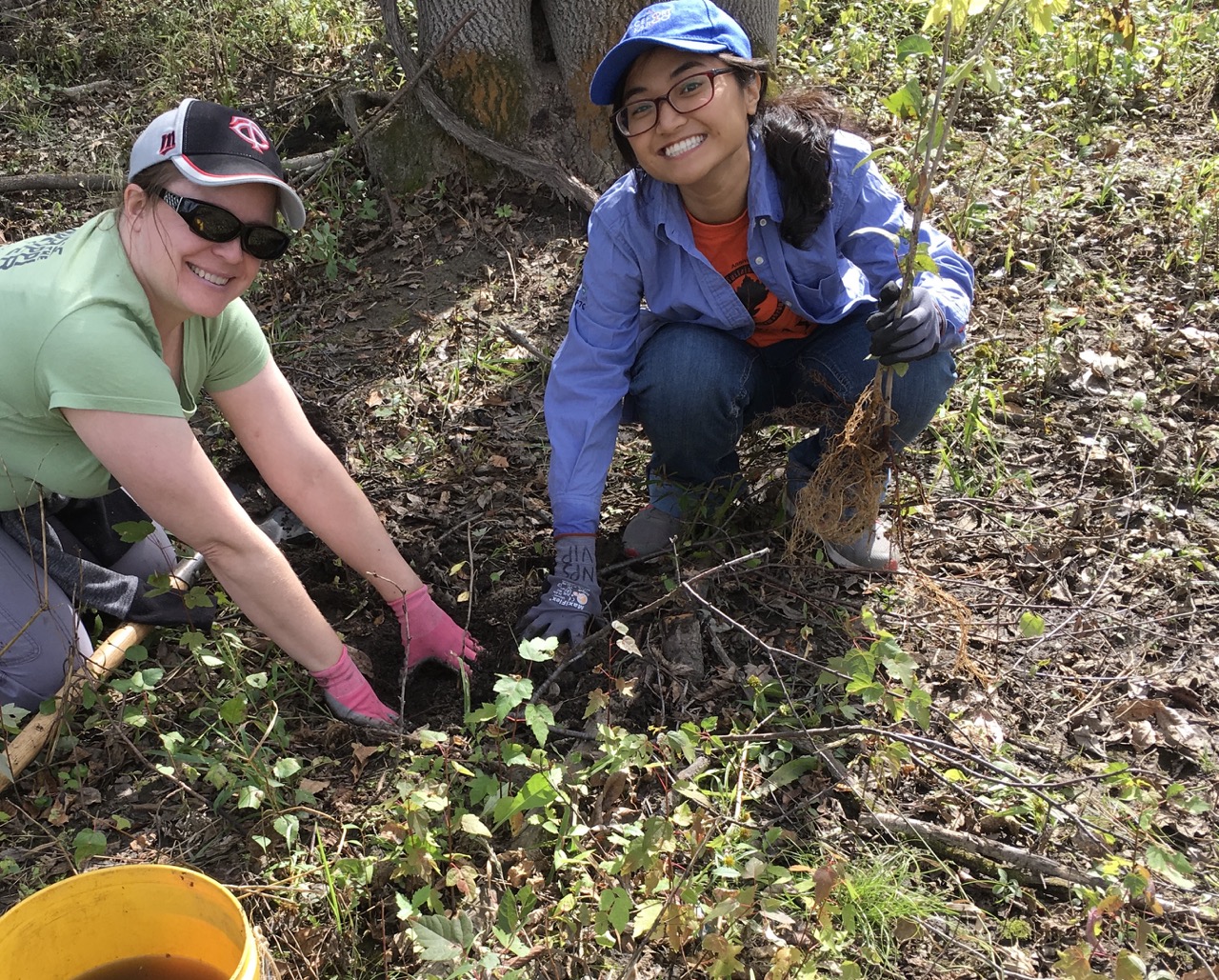My internship highlight: Planting hundreds of native trees on a tiny metro river island
by Phuong Nguyen, FMR conservation intern
Being an intern at FMR comes with many perks. One is being able to participate in volunteer habitat restoration outings. My favorite took place on a warm September afternoon (it seems so long ago already!) when I joined Senior Ecologist Karen Schik at FMR’s first event at Settler's Island. (You can learn more about my internship in this interview with FMR Conservation Director Betsy Daub.)
Settler's is a small, 3-acre floodplain forest island owned by the city of Cottage Grove, which welcomes restoration projects that also help turn the island into an enjoyable stop for kayakers, paddlers and boaters navigating through the channel. The island was originally Dakota land.
Settler's Island is becoming a more welcoming spot for paddlers and wildlife alike.After 20 minutes of paddling from Hazen P. Mooers Park in Cottage Grove, we rounded a bend and the island came into view. At first, it appeared to be carefully guarded and nearly impenetrable due to dense vegetation. But as we paddled around the corner, more open areas appeared.
Such open areas weren't here a couple of years ago.
For the past two years, FMR Ecologist Alex Roth has been working with crews to remove some of the dense patches of invasive buckthorn bushes and trees covering the island. The result is clearly visible: an island previously thicketed in the ornamental shrub from Europe now has open and paddler-accessible spaces ready to accommodate a variety of native vegetation that will benefit wildlife and improve the island's appeal.
350 trees!
Despite the small size and isolation by water, the island holds an abundance of life, from mature trees and herbaceous plants (like white snakeroot and jewelweed) to curious katykids (green leaf-like grasshoppers) that quickly jumped on to “inspect” staff and volunteers' canoes. I did not see any birds on the island that day, but they would sure enjoy these ready habitat and meals if they decide to stop by!
Not a bad way to commute to the job site!
With the opening of the canopy, our goal was to increase that habitat even further but planting no less than 350 native trees on the island.
First, Andrew Marotz, the volunteer coordinator at Mississippi Park Connection, introduced us to gravel bed planting, a technique that grows young trees bare root in gravel instead of soil for about half a year before planting.
This approach encourages stronger, denser roots so the trees can better withstand transplant shock and are much more likely to survive than traditionally planted trees. (Look at the amazing root growth in the picture below!) All trees planted that day came from event partner Mississippi Park Connection's community tree nurseries.

A complete root makeover, thanks to gravel beds. (Photo from the University of Minnesota Forest Resources Department’s 2013 guide)
The scene was vibrant with activity on an otherwise quiet part of the river — pairs of volunteers worked hard with their shovels and planting bars, helpers walked back and forth for water, chatting heartily while the sun shone on us and the island’s youngest tree residents.
Although the soil was still fresh and easy to work with from the spring and summer 2019 floods, I struggled with underground rocks and thick roots of mature trees and had to switch back and forth with my partner, long-term FMR SuperVolunteer Bea, for each tree. But each time I looked up from long periods of digging and planting to see the many young trees already planted around us, a sense of excitement filled me as I imagined what a beautiful forest this would soon become.
A young white oak, one of many native trees I helped plant on the island.
As Karen Schik and I left in our two-person canoe, some katykids refused to leave despite our repeated attempts to dissuade them, hitch-hiking back to the riverbank. I marveled at their ability to survive the flooded months then embark on this impromptu migration.
I was also struck by the large and diverse group of enthusiastic participants, from partners to volunteers, and what we could do together. At the end of our volunteer day, our group of 30 managed to plant more than 350 trees — on an island! This really shows how much people love and want to protect and restore habitat in the Twin Cities.
As an intern, I was happy to see the results of FMR's longer-term work, from building relationships and writing management plans to engaging community members in such a great event.
I know it will take a while for the young saplings to mature, but I'm optimistic that they will soon grow strong and adorn this lovely small island.
Environmental protection needs to be large-scale, but not every individual project needs to be. We can start right here on our local landscape — one habitat restoration site, one volunteer event to engage with the community at a time.
See you again soon, Settler’s Island!
Check out the event video
Thank you City of Cottage Grove for producing this great video of our tree planting adventure!
Thank you event partners
This restoration project is made possible from funding and assistance from the City of Cottage Grove, the National Park Service, and the Lessard Sams Outdoor Heritage Fund.
Join us!
If you'd like to volunteer at future habitat restoration events in Cottage Grove and other river corridor locations, contact FMR Volunteer & Outreach Coordinator Sophie Downey, volunteer@fmr.org.
